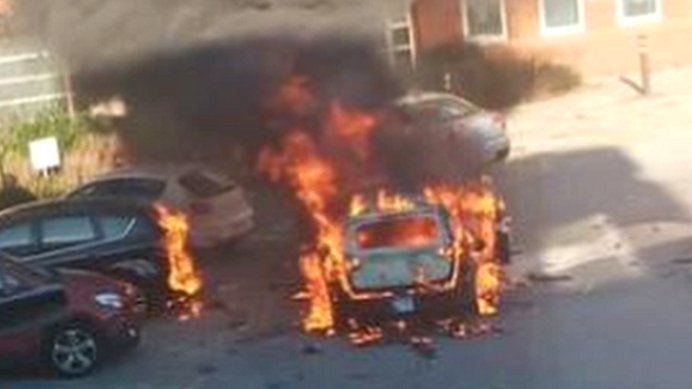Liverpool Women's Hospital explosion: Police name suspect killed in blast
- Published
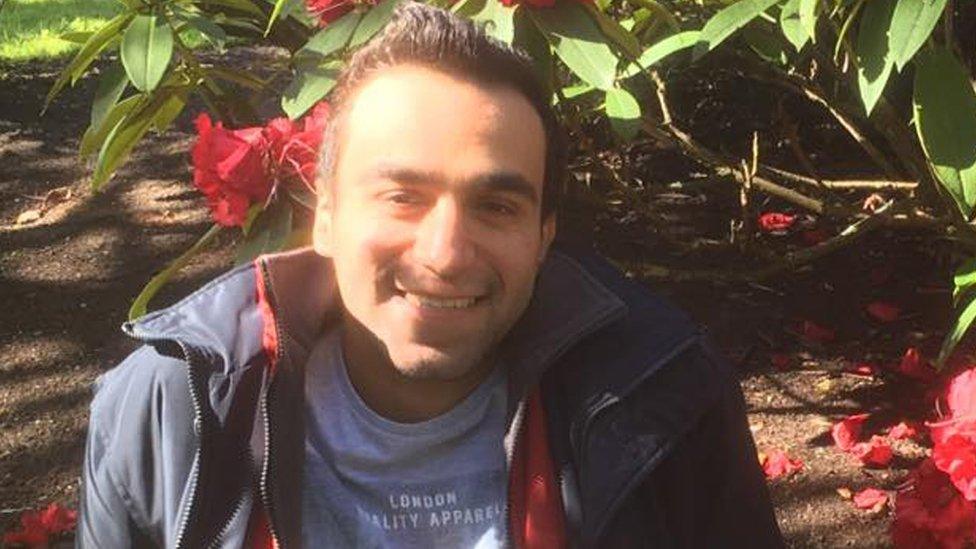
Emad Al Swealmeen died when a bomb exploded in a taxi outside Liverpool Women's Hospital
The man who died when a homemade bomb exploded outside Liverpool Women's Hospital has been named by police as Emad Al Swealmeen.
The 32-year-old was a passenger in a taxi when his device blew up shortly before 11:00 GMT on Remembrance Sunday.
The driver David Perry escaped before the car caught fire and has since been discharged from hospital.
Four men arrested in Liverpool under the Terrorism Act have been released from police custody without charge.
Meanwhile, the UK terror threat level has been raised to "severe".
Officers believe Al Swealmeen lived at a house in Sutcliffe Street in the Kensington area of Liverpool, where counter-terrorism police officers carried out raids earlier.
Police said he had recently rented an address in Rutland Avenue, near Sefton Park in the city, which has also been searched by officers.
"Our focus is the Rutland Avenue address where we have continued to recover significant items," said Det Ch Insp Andrew Meeks, from Counter Terrorism Police North West.
"Any information that the public may have about Al Swealmeen no matter how small may be of great assistance to us."
In a later statement, police said they had made "significant progress" since Sunday and had a "much greater understanding of the component parts of the device, how they were obtained and how the parts are likely to have been assembled".
BBC News correspondent Ed Thomas said Al Swealmeen was a refugee from Syria who was befriended and supported by Malcolm and Elizabeth Hitchcott, who knew him as Enzo, when he arrived in the UK.
Mrs Hitchcott said she and her husband were "just so sad" and were "very shocked" by his death.
"We just loved him, he was a lovely guy," she added.
Watch: The cab pulled up outside Liverpool Women's Hospital and exploded into flames
Al Swealmeen is believed to have manufactured and brought the device into the taxi.
Police said he was picked up from the Rutland Avenue area and asked to be taken to the hospital, about 10 minutes away, before the bomb exploded.
He is not believed to have previously been known to MI5.
Four men were arrested under terrorism laws in the Kensington area of Liverpool - three aged 21, 26 and 29, who were held on Sunday, and a 20-year-old man who was detained on Monday.
Assistant Chief Constable Russ Jackson said on Monday evening: "Following interviews with the arrested men, we are satisfied with the accounts they have provided and they have been released from police custody."
He said: "It is likely to be some time, perhaps many weeks, until we are confident on our understanding of what has taken place", adding that police have "considerable resources and staff deployed to understand how this device was built and who, if anyone, else was involved".


Investigators are being cautious about drawing conclusions about the motivation of Emad Al Swealmeen.
He is believed to have originally come from the Middle East and went into the asylum system. But in recent years he may have converted to Christianity and also suffered from mental health issues.
The decision to declare this a terrorist incident looks less to be based on a clear understanding of his ideology and more on his methodology, with the use of an improvised explosive device.
However, investigators will still be hoping to gain a better understanding of what exactly lay behind this incident.

Earlier, police said Mr Perry had been released from hospital after being treated for his injuries.
Posting on Facebook, the taxi driver's wife Rachel said he was "lucky to be alive".
"The explosion happened whilst he was in the car and how he managed to escape is an utter miracle," she added.
Police confirmed a controlled explosion had been carried out as a precaution in the Sefton Park area at about 16:00 GMT on Monday as part of the investigation.
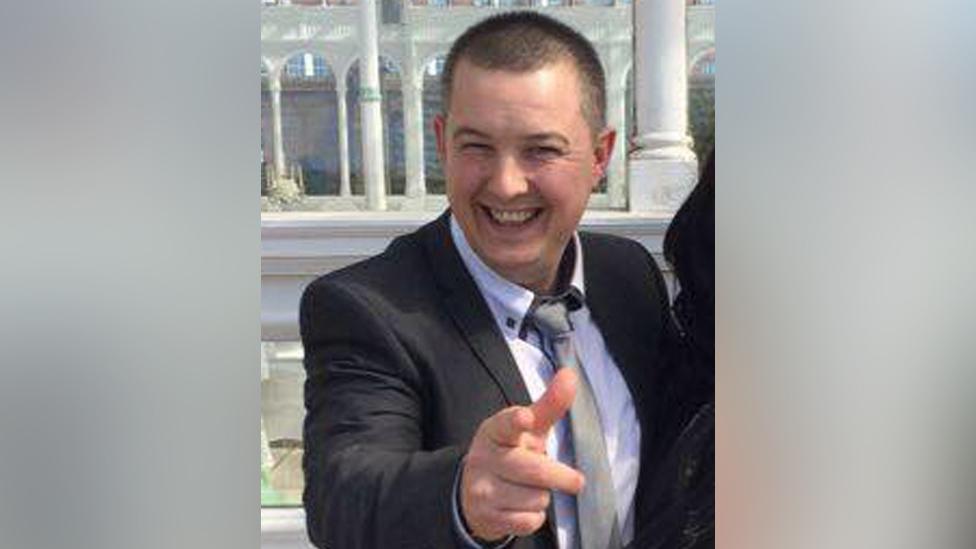
Taxi driver David Perry has been released from hospital
Home Secretary Priti Patel said the terror threat level had been raised from "substantial" to "severe", meaning an attack is "highly likely", because the explosion in Liverpool was the second incident in a month.
The death of Conservative MP Sir David Amess, who was stabbed multiple times during a meeting with his constituents in Essex on 15 October, has been treated as a terrorist incident by police.
Deputy Assistant Commissioner Matt Twist, one of Counter Terrorism Policing's senior national co-ordinators, said the change was a "precautionary measure and not based on any specific threat", adding that the public "should not be alarmed by this change".
Patients have been told to attend appointments at Liverpool Women's Hospital as normal.
The hospital's chief executive, Kathryn Thomson, paid tribute to "brave and dedicated" staff and emergency service workers but added the last two days had been "extremely upsetting and traumatising".
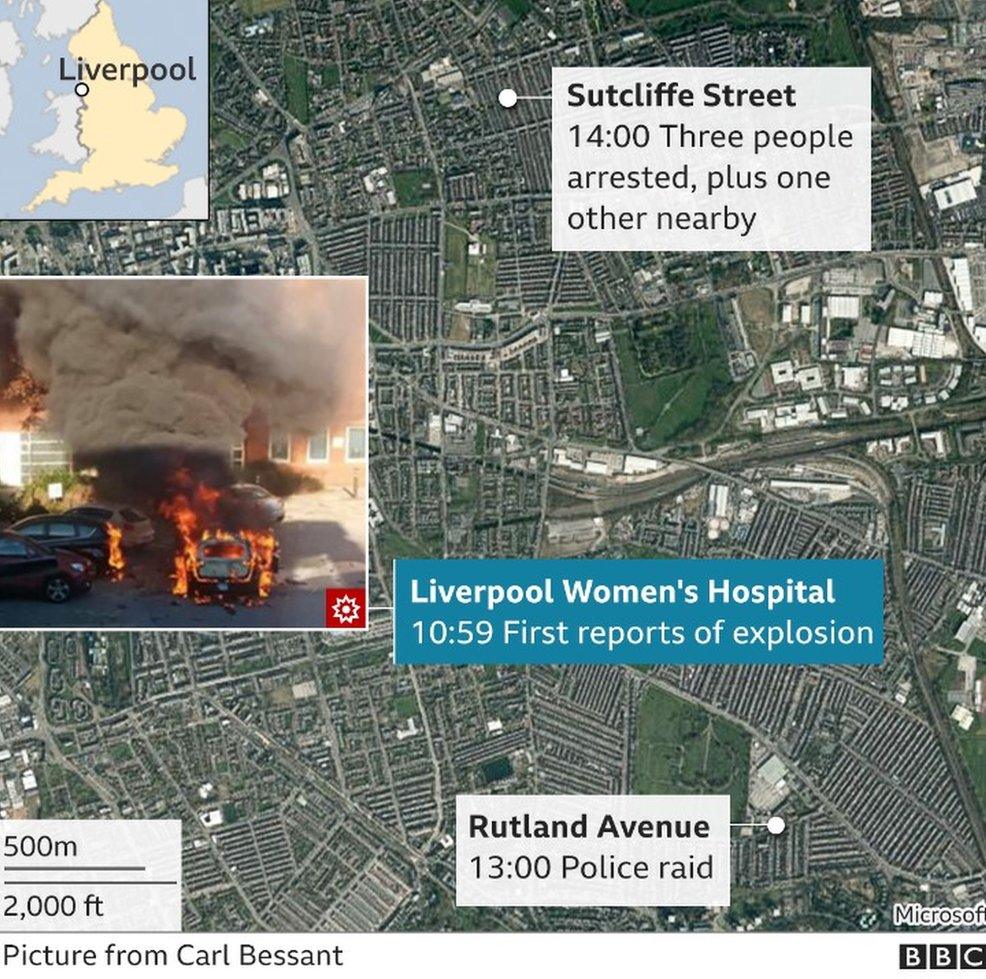
Additional reporting by Doug Faulkner

Did you witness what happened? Email haveyoursay@bbc.co.uk, external.
Please include a contact number if you are willing to speak to a BBC journalist. You can also get in touch in the following ways:
WhatsApp: +44 7756 165803
Tweet: @BBC_HaveYourSay, external
Please read our terms & conditions and privacy policy
If you are reading this page and can't see the form you will need to visit the mobile version of the BBC website to submit your question or comment or you can email us at HaveYourSay@bbc.co.uk, external. Please include your name, age and location with any submission.
Related topics
- Published15 November 2021
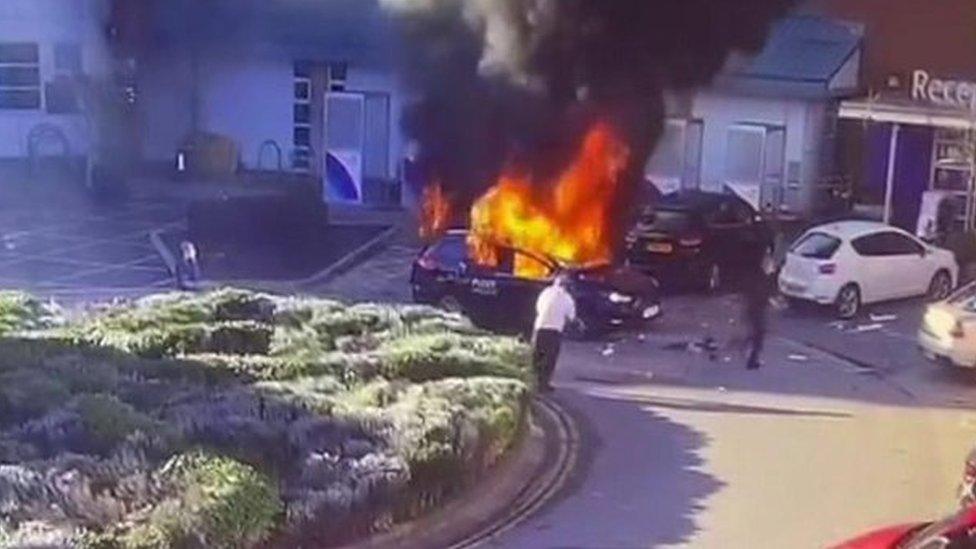
- Published15 November 2021
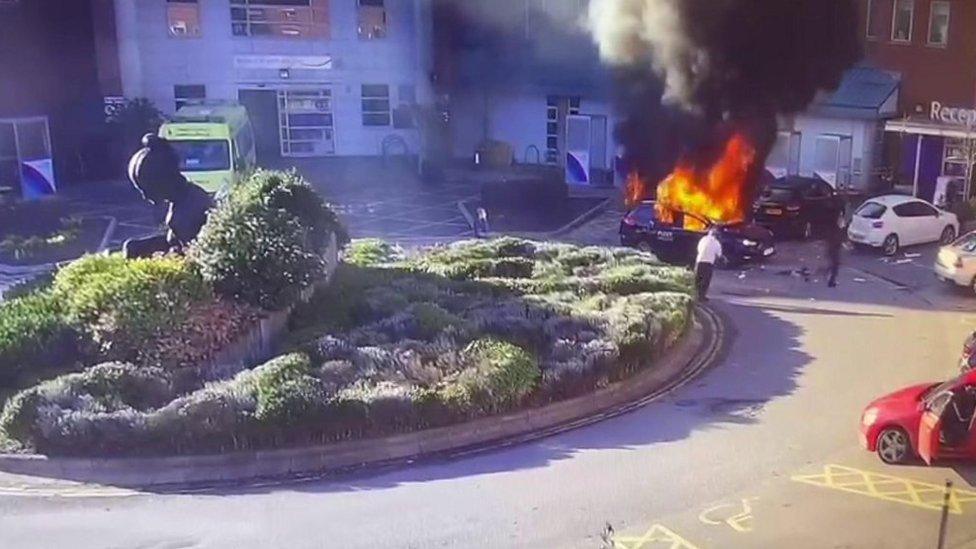
- Published18 November 2021
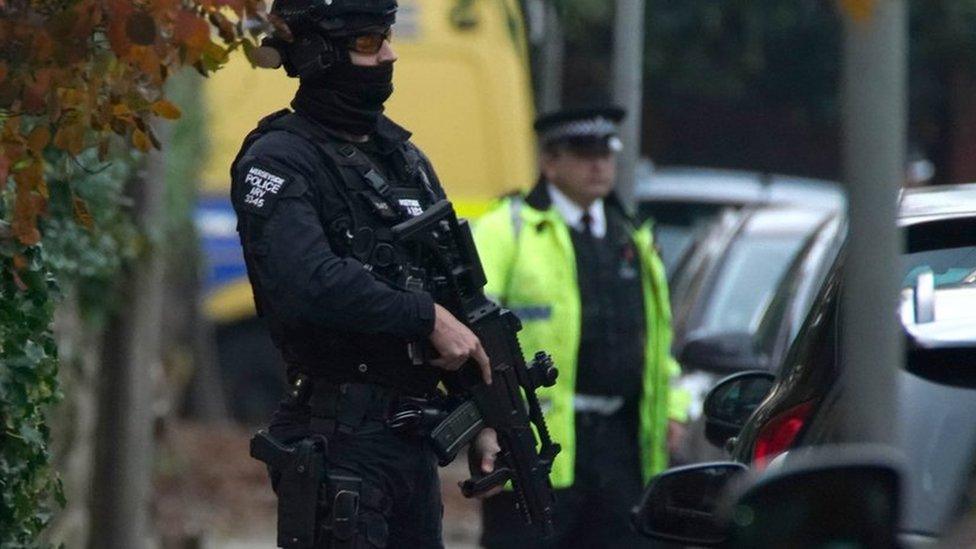
- Published15 November 2021
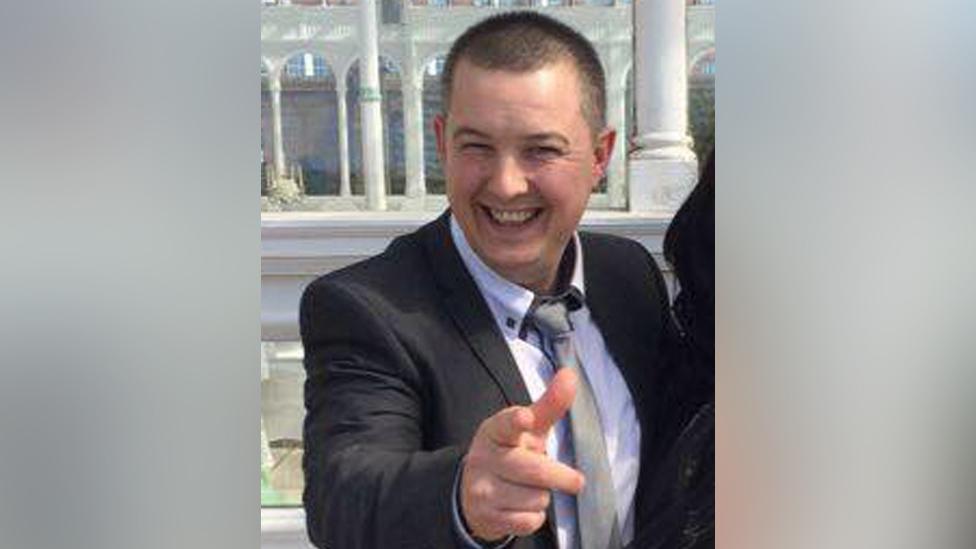
- Published15 November 2021
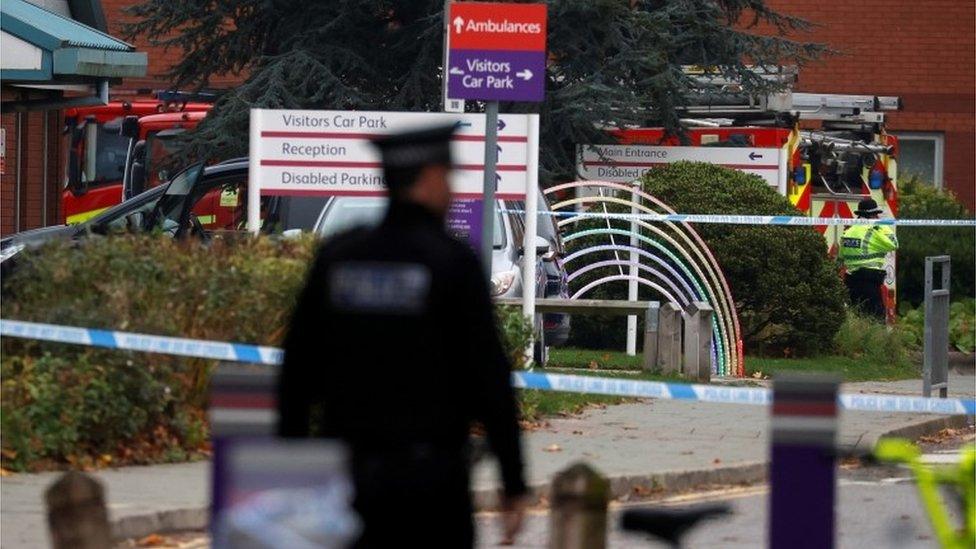
- Published15 November 2021
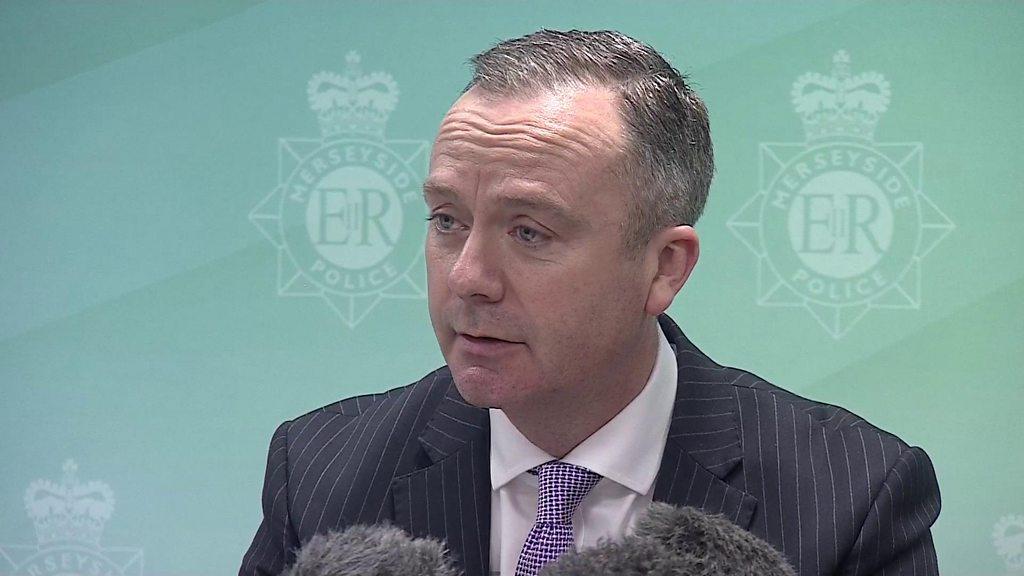
- Published15 November 2021
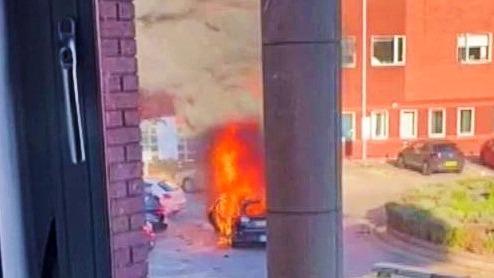
- Published15 November 2021
